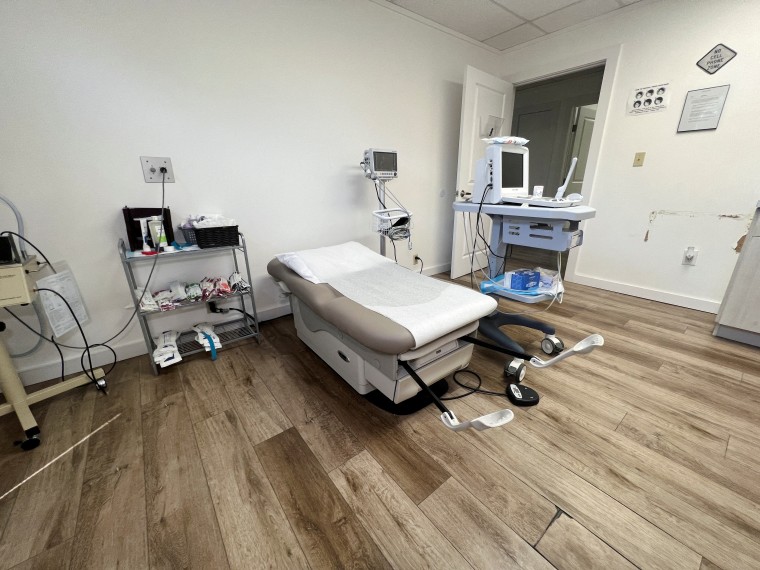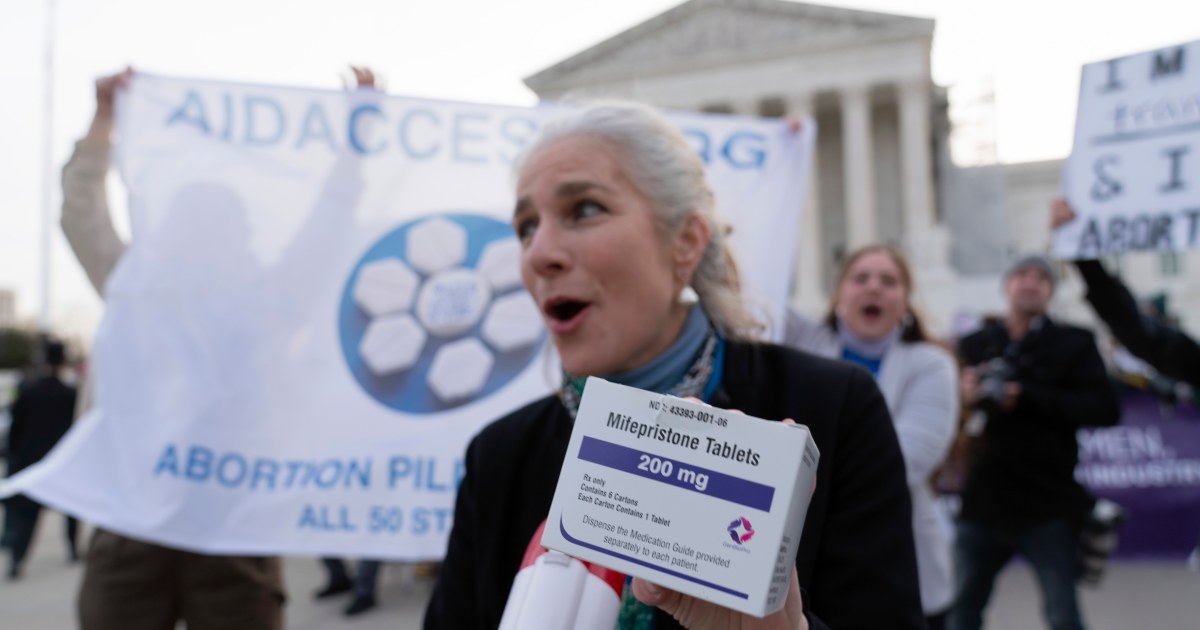By Aria Bendix -
NBC News
The woman was 19 weeks pregnant when her water broke.
In less than a day, she contracted a life-threatening infection.
Dr. Mae-Lan Wang Winchester, a Cleveland obstetrician-gynecologist, was called in to terminate the pregnancy.
But Ohio has banned abortions after detecting a fetal heartbeat, unless the mother's life is threatened.
[State Abortion Ban Could Affect More Than Half of Nation's Veterans and Women with Disabilities]
“The first person I called was my attorney to say, 'Do I have to do something different or special?
I know what to do medically, but what do I do legally to protect her and myself?
Winchester said.
In the weeks since the Supreme Court overturned the Roe v.
Wade, these kinds of calls have become commonplace, with doctors relying on legal teams to help them decide when it's legal to terminate a pregnancy in states with new restrictions.
But that can sometimes delay care in emergency situations where a few minutes make a big difference.
"It could mean life and death if I stop seeing the patient when I think she should move on, but I want to check with the attorney to make sure I'm covered," says Dr. Tani Malhotra, a Cleveland gynecologist who works with Winchester.
“When people bleed, when people bleed, when people get really sick, a few minutes make a difference,” she explained.
The FDA is considering approving the first contraceptive pill without a prescription
July 12, 202200:25
Most abortion bans make exceptions for life-threatening situations in pregnancy, but it's not always clear what qualifies, and doctors fear fines and prosecution.
In the case of the woman who was 19 weeks pregnant, Winchester said, the decision ended up being a no-brainer, as "she was clearly dying."
But other scenarios are more complicated.
[10-Year-Old Abuse Victim Denied An Abortion In Ohio]
He recently treated a woman who was pregnant with twins.
One of them had little chance of surviving, posing a threat to the healthy one.
So Winchester had to terminate the pregnancy of one of the fetuses to save the other, but was it legal?
“I ran out to call my lawyer,” he recalled.
"It wasn't even five minutes, but in those emergencies I don't have time to be on the phone," she explained.
Even doctors who do not terminate pregnancies said they have consulted with lawyers to see if the new abortion laws affect services such as fertility treatment, miscarriage care or abortion referrals.
For their part, abortion providers in states where it is still allowed have sought legal advice about the possibility of accepting patients from states with bans.
[How dangerous does a pregnancy have to be to legally terminate it?]
“We've made sure that anything we do goes through a lot of legal eyes because we want to make sure that patients have access to this care,” said Dr. Maya Bass, a family physician who performs abortions in New Jersey.
In turn, nurses, physician assistants, and others caring for patients whose pregnancies must be terminated have to trust that their hospitals and clinics are doing their legal due diligence.
Some abortion bans have “aid and abet” clauses that implicate anyone who participates in a procedure.
A view of the medical bed and procedure room where abortions were formerly performed, inside the Tulsa Women's Clinic, in Tulsa, Oklahoma, United States on June 20, 2022. Liliana Salgado/REUTERS
This makes Lauren Reece, a nurse anesthetist from Birmingham, Alabama nervous.
She is in charge of anesthetizing patients suffering from an abortion or ectopic pregnancy.
In Alabama, abortions are prohibited, with exceptions for serious health risks.
[Changing laws on access to abortion in several states create confusion for patients and clinics]
"If a surgeon puts an ectopic on the agenda, we have to trust that he's not going to put us in a situation where we're breaking the law," he said.
Communication problems between doctors and lawyers
Dr. Caitlin Bernard, an obstetrician-gynecologist in Indianapolis, said she worries what would happen if doctors can't immediately reach attorneys by phone, perhaps on weekends or at night.
Indiana is expected to ban abortions in a special session on July 25.
“They are accessible to me Monday through Friday, but I haven't had the need to call them in the middle of the night, luckily.
I don't know what that situation will be like," she explained.
[Can prosecutors use personal digital information in states where abortion is prohibited?]
Winchester said that while her attorneys are responsive, it can sometimes be difficult to communicate efficiently during emergencies.
“They are not doctors and I cannot expect them to understand everything I say.
At the same time, I'm not a lawyer, so I don't understand everything they say,” she stated.
This need to increase dialogue between doctors and lawyers prompted Chloe Akers, a criminal defense attorney in Knoxville, Tennessee, to create a nonprofit group called Standing Together Tennessee.
"There are people who are dying": Becky G sets her position on gun control and abortion
July 6, 202201:53
The organization plans to hold briefings this summer to help lawyers and doctors interpret Tennessee's abortion ban.
“Medical service providers need legal knowledge.
Lawyers need the medical knowledge,” he noted.
“A criminal defense attorney can't advise a client unless he has an understanding of the subject matter and most criminal defense attorneys don't,” she noted.
[Google will automatically delete abortion clinic visits from its users' location history]
But Akers pointed out that even for lawyers, the implications of the Tennessee ban are sometimes unclear.
"There are going to be a significant number of questions that we can't answer," he said.
"This law is new and there is no jurisprudence to guide us."
Leave medical decisions in the hands of a legal team
Bernard said that whatever legislation passes in Indiana, he plans to continue terminating ectopic pregnancies — when a fertilized egg implants outside the uterus.
"Those are the kinds of conditions that, as far as I'm concerned, I will take to the Supreme Court to make sure we can continue to provide that care," he explained.
[The states assert that the abortion ban does not affect in vitro fertilization. But the doctors have doubts]
The rest, he said, will depend on his legal team.
“I have to follow the law as it is established, or as interpreted by the people who are going to support me directly if I need them, and that is our hospital legal system,” Bernard said.
Malhotra, who treats patients with high-risk pregnancies, said that for all medically complicated cases going forward, his attorneys will get a call.
"I will consider talking to the lawyers regardless of what I think my decision would have been," he concluded.















